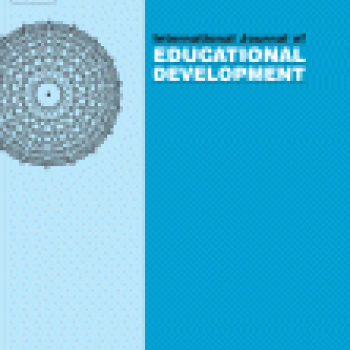Publication Information

Article written by Sowmya Dhanaraj, Madras School of Economics using Young Lives data from the UK Data Archive.
This study explores the inter-generational effects of health shocks using longitudinal data of Young Lives project conducted in the southern state of India, Andhra Pradesh for two cohorts of children (younger and older). It is found that health shocks to poorer parents reduce investments in human capital of children thereby reducing their future earnings, and perpetuating poverty and inequality. There is a temporary delay in primary school enrollment in the case of younger cohort, while schooling attainment is reduced by 0.26 years for older children. This paper further contributes to the literature on important dimensions like role of timing of the shocks and the pathways through which they affect human capital investment, differential effects of paternal and maternal shocks on different cohort groups, ability of the children and quality of schooling in schooling attainment.
Highlights
• This paper estimates the impact of parental health shocks on educational outcomes of two cohorts of children in Andhra Pradesh, India.
• Health shocks to mother during early childhood temporarily delay initiation of the child into primary school but paternal shocks have no effect.
• For older children, paternal health shocks reduce grade advancement by children while maternal shocks have no effect.
• From time use pattern of children, we find that maternal health shocks divert children’s time to domestic tasks/household chores for both cohorts.
• Paternal health shocks reduce time spent at school and increase the number of hours spent in paid/unpaid work in the case of older children.
Keywords: Parental health shocks; School enrolment; Grade attainment | JEL classifications O15; O12; I30
Reference
Sowmya Dhanaraj (2016) 'Effects of Parental Health Shocks on Children’s Schooling: Evidence from Andhra Pradesh, India', International Journal of Educational Development 49: 115–125 (July 2016, early online publication).

Article written by Sowmya Dhanaraj, Madras School of Economics using Young Lives data from the UK Data Archive.
This study explores the inter-generational effects of health shocks using longitudinal data of Young Lives project conducted in the southern state of India, Andhra Pradesh for two cohorts of children (younger and older). It is found that health shocks to poorer parents reduce investments in human capital of children thereby reducing their future earnings, and perpetuating poverty and inequality. There is a temporary delay in primary school enrollment in the case of younger cohort, while schooling attainment is reduced by 0.26 years for older children. This paper further contributes to the literature on important dimensions like role of timing of the shocks and the pathways through which they affect human capital investment, differential effects of paternal and maternal shocks on different cohort groups, ability of the children and quality of schooling in schooling attainment.
Highlights
• This paper estimates the impact of parental health shocks on educational outcomes of two cohorts of children in Andhra Pradesh, India.
• Health shocks to mother during early childhood temporarily delay initiation of the child into primary school but paternal shocks have no effect.
• For older children, paternal health shocks reduce grade advancement by children while maternal shocks have no effect.
• From time use pattern of children, we find that maternal health shocks divert children’s time to domestic tasks/household chores for both cohorts.
• Paternal health shocks reduce time spent at school and increase the number of hours spent in paid/unpaid work in the case of older children.
Keywords: Parental health shocks; School enrolment; Grade attainment | JEL classifications O15; O12; I30
Reference
Sowmya Dhanaraj (2016) 'Effects of Parental Health Shocks on Children’s Schooling: Evidence from Andhra Pradesh, India', International Journal of Educational Development 49: 115–125 (July 2016, early online publication).

